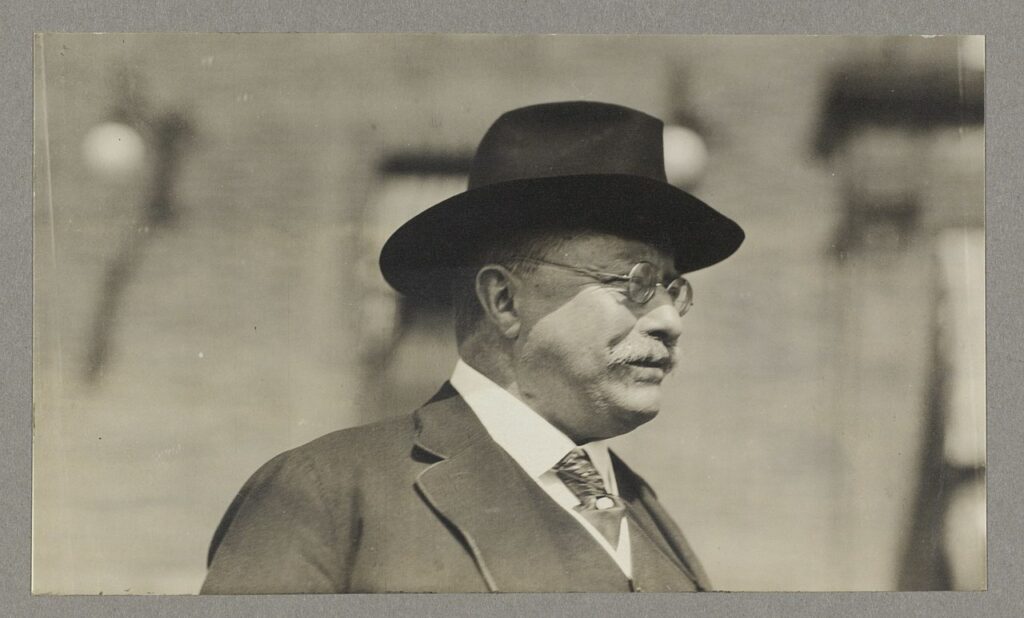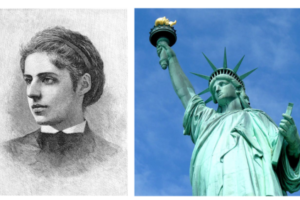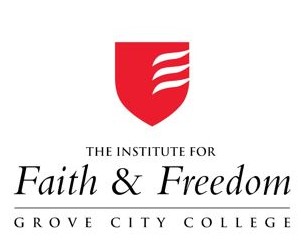Trump Wasn’t the First President to Dine with Controversial Guests

Donald Trump is by no means the first president to produce public outrage over controversial choices in his selection of dinner guests.
In October of 1901, just weeks after he took over the presidency from the assassinated William McKinley, Theodore Roosevelt provoked indignant denunciation when he invited the noted educator, Booker T. Washington, to join the First Family and to become the first Black American ever to dine at the White House.
In one typical southern reaction, the Memphis Evening Scimitar editorialized: “The most damnable outrage that has ever been perpetrated by any citizen of the United States was committed yesterday by the President, when he invited a nigger to dine with him at the White House… He has not inflamed the anger of the Southern people; he has excited their disgust.”
Even in the North, the press reaction combined amazement and indignation. The Minneapolis Journal ran hysterical headlines: “SOUTHERNERS ARE HEATED/ PRESIDENT CRITICIZED FOR DINING WITH PROFESSOR WASHINGTON/ MORE THAN SHOCKING/ POSSIBLE POLITICAL EFFECT OF CROSSING OF THE COLOR LINE”
Leading politicians even threatened violence over a private dinner party that lasted only a few hours. In Charleston, South Carolina, U.S. Senator Benjamin (“Pitchfork Ben”) Tillman declared: “The action of President Roosevelt in entertaining that nigger will necessitate our killing a thousand niggers in the South before they will learn their place again.”
Some three years later, when Theodore Roosevelt campaigned for a new term as President, Democrats still used the infamous dinner party to try to discredit him. A popular campaign button showed a portrait of Judge Alton B. Parker, TR’s challenger, paired with the image of a loving, idealized very pale all-American couple. The other side of the circular trinket featured a portrait of the president together with a depiction of a blonde beauty arm-in-arm with a cartoonish Black man in showy clothes with exaggerated, thick lips. The message between these contrasting visions announced: IT’S UP TO YOU – TAKE YOUR CHOICE – to make the point that a vote for Roosevelt meant support for miscegenation.
These attacks didn’t stop TR from winning his 1904 race in a sweeping landslide, even though he did lose all eleven states of the one-time Confederacy. “I would not lose my self-respect by fearing to have a man like Booker T. Washington to dinner,” he wrote, “if it cost me every political friend I have got.” He reinforced that message by taking numerous opportunities to support the passionate emphasis on education and uplift by Washington, a former slave. In 1905 he paid a Presidential visit to Tuskegee Institute, on Founders Day, 1905, to honor the pioneering land-grant university Washington had founded a quarter century before.
In other words, the dinner that had initially generated such angry controversy for Theodore Roosevelt became a positive landmark for the president and the nation at large, treated as an honorable incident by virtually all historians.
It’s hard to imagine that Donald Trump’s already infamous meal with the antisemitic rapper originally known as Kanye West and the unapologetic white supremacist Nick Fuentes would ever achieve comparable acceptance and admiration, regardless of Trump’s political future.
TR’s dinner constituted public, presidential defiance of racism that put him ahead of his time; Trump’s misplaced hospitality amounted to an unexpected sanction for repugnant attitudes which are, to say the least, out of favor in 2022. Roosevelt expressed consistent pride for having extended his 1901 invitation, but neither Trump himself nor any members of his inner circle have offered any effort to defend his choice in dining companions, beyond insisting that he didn’t know who Nick Fuentes was.
The only other argument occasionally used to diminish the significance of the dinner guest donnybrook involves the private context of the Mar-a-Lago meal. The White House has been described as the property of the American people with its presidential occupants enjoying only temporary leases. This means that public outrage at inappropriate guests makes more sense regarding the executive mansion on Pennsylvania Avenue than it does for a private club in Palm Beach. Many Americans, particularly those who support a Trumpian return to power, seem prepared to cut the former president considerable slack regarding whatever creeps, weirdos and bigots he chooses to welcome into his own home.
But this particular ex-president is different from any of his predecessors because he’s already announced his candidacy to for a new lease on his former White House residence. In that context, an uncomfortable question becomes incontestably relevant: if he does return to the executive mansion in January 2025, would he consider new invitations to the likes of Ye and Fuentes? Or will he concede that the same latitude that may expand the guest list at Mar-a-Lago wouldn’t apply to the official seat of power for the leading nation of the Free World? A social gathering at the former President’s Palm Beach estate which, in the course of the year, caters primarily to paying visitors doesn’t necessarily send a political or moral message; an official banquet at the White House most certainly does.
Naturally, Donald Trump displays scant appetite to express his regrets, if any, concerning the ill-considered sit-down at his celebrated home. But even if he succeeds in keeping himself from talking about the sore subject, it’s very unlikely that Ye and Fuentes, who seem to relish the intense attention they’re receiving, will demonstrate a similar eagerness to change the topic.
In order to reduce the damaging impact of the entire episode, Trump can only gain by informing himself about the experience of his presidential predecessor. For one thing, any comparison at all with a Rushmore immortal like TR can only flatter Trump. More importantly, if he can come to terms with the distinctions in character and context that differentiate Roosevelt’s disputed dinner from his own, it can help avoid further unnecessary disasters regarding dining and even more important undertakings.




















